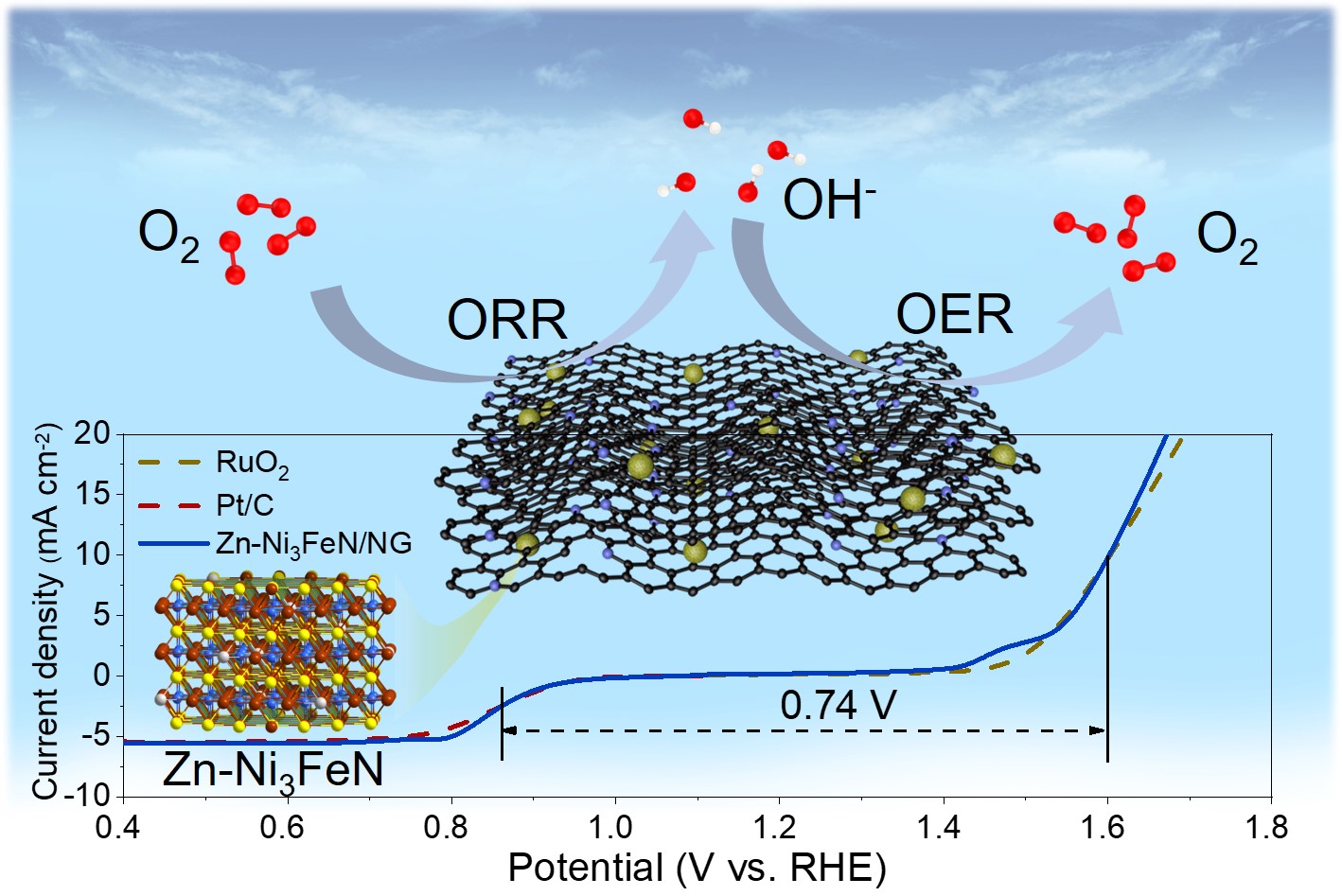Recently, Li Xu published the latest research work titled “Engineering the Electronic States of Ni3FeN via Zinc Ions Regulating for Promoted Oxygen Electrocatalysis in Rechargeable Zn-air Batteries” (J. Mater. Chem. A, 2020, DOI: 10.1039/D0TA10370E) online in Journal of Materials Chemistry A (Top journal of Energy & Fuels, IF: 11.301). Jiangsu University is the first completed department of this paper. Graduate student Xiaoyang He is the first author. Associate professor Li Xu and Prof. Henan Li are the Co-corresponding author.

Developing highly efficient bifunctional electrocatalysts for oxygen reduction reaction (ORR) and oxygen evolution reaction (OER) is pivotal for large-scale commercial applications of Zn-air batteries. In this work, a Zn-doped Ni3FeN/nitrogen-doped graphene (Zn-Ni3FeN/NG) electrocatalyst was designed and synthesized via a facile and reliable method. Thanks to the electronic synergy effect, the stress caused by lattice distortion from Zn dopant embedded in the Ni3FeN can alter the electronic environment of the peripheral regions and generate more catalytical active sites. The resultant Zn-Ni3FeN/NG exhibits a remarkable bifunctional electrochemical activity and stability, giving an overvoltage difference as low as 0.74 V. The Zn-air battery with the Zn-Ni3FeN/NG as air cathode shows an excellent cycle life and a high-power density of 158 mW cm–2, exceeding that of the apparatus based on the commercial Pt/C and RuO2 (120 mW cm–2). Density function theory (DFT) calculations reveals that the inserted Zn2+ ions can modulate the electronic structure of the Ni3FeN and modify the adsorption/desorption features and lower the overall reaction barriers during the oxygen electrocatalyst reaction. This study offers a facile strategy on the design of high-efficient oxygen bifunctional electrocatalysts for energy-related technology.
The research work is financed by National Natural Science Foundation of China, Six Talent Peaks Project in Jiangsu Province, Natural Science Foundation of Jiangsu Province, High-tech Research Key laboratory of Zhenjiang and a Project Funded by the Priority Academic Program Development of Jiangsu Higher Education Institutions.
